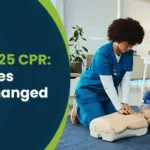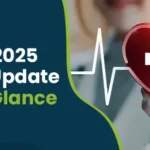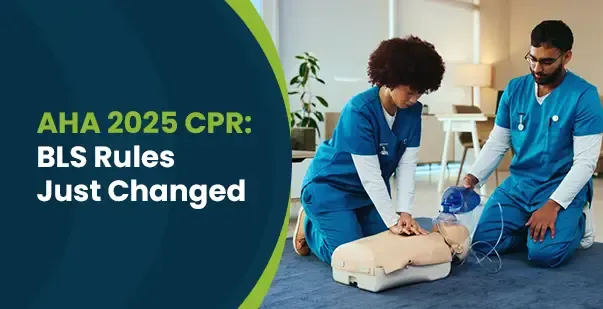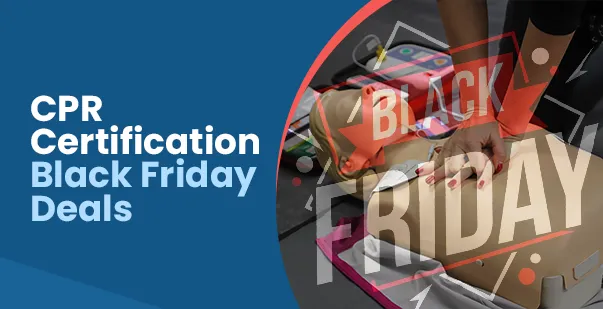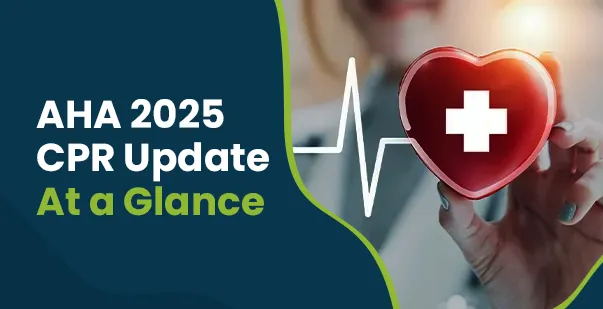Did you lose your cardiopulmonary certification (CPR) card? It can be a stressful experience, especially when it is required for your volunteer work or for employment. Imagine being prepared for an emergency and having lost your card! It is not a piece of paper, but your ticket to being a trained responder for critical situations. But do not worry. Replacing your lost CPR card is easier than you think.
Take a deep breath and read this blog to get a replacement card quickly and efficiently. Get your replacement card today and make a difference in situations that matter the most.
What is the importance of keeping your CPR certification current?
Keeping your CPR certification current is crucial to maintaining your skills. It also ensures that you are well prepared to respond effectively in emergencies. An up-to-date certification shows your commitment to providing high-quality care. Regular renewal helps you stay informed about the latest techniques. Here is why you must keep your CPR certification current:
1. Enhanced emergency response skills:
Renew your certification regularly to keep your skills sharp and effective. CPR techniques and guidelines can change over time. So stay updated to apply the most current practices. This boosts your confidence and increases your ability to act promptly.
2. Compliance with job requirements:
Many employers require staff to have a valid CPR certification. Updated certification ensures you stay in compliance with these job requirements. This secures your employment and also shows your commitment to professional standards.
3. Insurance and liability coverage:
A current CPR certification card is also crucial for certain insurance policies and liability coverage. During an emergency, an updated certification can protect you legally. This defends you against legal claims.
4. Be confident and respond promptly:
Regular renewal of CPR certification improves your confidence. Knowing you are updated with the required training equips you for emergencies. This reduces panic and improves the quality of care. If you are well prepared, it can make a significant difference.
5. Makes a community safer:
By maintaining a current CPR certification, you contribute to the well-being of your community. Trained individuals increase the survival rates of cardiac arrest victims. Your skills can inspire others to get trained and certified. This creates a safer environment where more people are ready to respond in emergencies.
Read more: CPR Success Rate: How Effective Is CPR in 2024?
How to replace a lost card?
Wondering ‘how to find my CPR certification card?’ Losing your CPR card can feel overwhelming. The process to get a replacement card is manageable and straightforward. The steps below will help you regain your certification proof without any hassle:
1. Contact the issuing organization:
The first step is to reach out to the organization that issued your CPR certification. The information will be stored with them. Provide them with relevant information, including your name, certification date, and any identification numbers you have. They will guide you through the process.
2. Complete any required forms:
Once you have contacted the issuing organization, you will need to fill out a form and request a replacement card. This will ask for your personal information and relevant details. Make sure you provide accurate information to avoid delays.
3. Pay a replacement fee:
Most organizations charge a small fee to issue a replacement CPR card. This covers administrative costs and costs to produce a new card. So be prepared to make the payment after submitting your request. The payment methods tend to vary. Hence, check the details well before payment.
4. Verify your identity:
Prevent fraud and ensure the security of your certification. This involves providing a copy of your photo ID or answering security questions. The issuing organization will outline their requirements. Follow the steps carefully to avoid any complications.
5. Receive your replacement card:
After completing the steps listed above, you will receive your replacement CPR card. The time frame for receiving your card can vary. So ask the organization for the estimated delivery time. Keep the documentation safe for future use.
Who has access to a replacement card?
Access to a replacement CPR certification card is limited to the individual who was originally certified and the issuing organization. This ensures the accuracy of the certification records. Here are the individuals who have access to a replacement card.
1. Certified individual:
The primary person who can access a replacement CPR card is the individual who originally received the certification. You must provide personal information and verification details to prove your identity.
2. Certified individual:
The organization issuing the original CPR certification maintains records of your certification. They have access to all the details regarding certification and training status. They are responsible for issuing the replacement cards.
3. Authorized employers or institutions:
Employers or institutions that require proof of your CPR certification may have access to verification of your certification status. This is done through an official verification process. However, they do not have access to request a replacement card on your behalf.
4. Authorized representatives:
If you are not able to request a replacement card yourself, you may authorize someone else to do it. The person will need to offer proof of authorization, such as a signed letter.
What should you do if you cannot get a CPR replacement card?
If you cannot get your CPR replacement card even after trying the above-mentioned steps, here are some alternative solutions to consider:
1. Contact your employer or organization:
If you need proof of certification for your job, contact your employer or the organization requiring the certification. Explain the situation well and provide any supporting documents you have. This includes emails or receipts from your original certification course. Several employers have certification systems or can contact the certifying organization on your behalf. They might accept temporary proof while you work on obtaining a new certification.
2. Take a refresher course:
Another option to consider is a refresher course. This provides you with updated certification and refreshes your knowledge and skills. This prepares you effectively for emergencies. Several organizations offer refresher courses, which can be completed quickly. Once you complete the course, you will receive a new certification card. This will solve your replacement issue.
3. Request a verification letter:
Some certifying organizations offer a verification letter if they cannot issue a replacement card. This serves as an official proof of your certification status. It also includes all relevant details about your training. Contact the organization and ask if the option is available. Keep the verification letter safe, as it can be used for employment or compliance purposes.
Read more: CPR Training Requirements for Healthcare Providers
What are the tips for preventing the loss of your CPR card in the future?
Preventing the loss of your CPR card helps save time and hassle in the future. Here are a few practices to ensure your certification is accessible when needed: Here are some effective tips to keep your CPR card safe and secure.
1. Digital copies:
Create copies of your CPR card. Store the copies on your computer on storage devices. Digital copies are accessible and serve as temporary proof if the physical cards are lost. This ensures you always have a backup during emergencies.
2. Secure physical storage:
Keep your physical CPR card in a safe location. Use a dedicated folder or wallet section to store the essential documents. Do not carry the card around. This may lead to misplacement. Storing it securely ensures it remains in good condition and is found when needed.
3. Regular verification:
Verify that your card is in the right location. Set reminders and check for the card every few months. This habit helps you catch misplacement early and address it promptly.
4. Notify the employer or organization:
Inform your employer about the location of your card. Provide a digital copy. Provide a digital copy in your personnel file. This way, if you lose your card, there is an official record that can help in obtaining a replacement. Keep others informed to add an additional layer of security.
Conclusion
A CPR card is a valuable document that enables you to respond promptly during emergencies. Losing your card is scary. However, do not panic. Contact the issuing organization, complete the required forms, pay the replacement fee, verify your identity, and that’s it. You will receive your replacement card. Follow the tips to not replace the card. Once you replace your card, keep it safe to utilize it in situations when it is needed the most.
Frequently Asked Questions about CPR Card Replacement
How long does it take to find my CPR certification card?
The time depends on the issuing organization. It takes a few days or weeks. It is ideal to contact the organization directly to get a specific time frame. Inquire about any available option for faster service.
Do you have to pay for replacing a lost CPR card?
Yes, most certifying organizations charge a fee to replace a lost CPR card. The fee covers administrative and production costs. The cost can vary depending on the organization. Hence, it is recommended to check the specific policies.
Can you get a digital copy of my CPR card?
Yes, many organizations offer a digital copy of your CPR card. The digital version serves as a temporary proof of certification. Digital copies are available for immediate download after you request a replacement. Check with your organization to see if the option is available.
What information is required to get a replacement CPR card?
You need to provide specific information to verify your identity. This includes your full name, the date of your original certification, the name of the instructor, and any identification numbers associated with your certification. This information can help your certification speed up the process and ensure accuracy.
